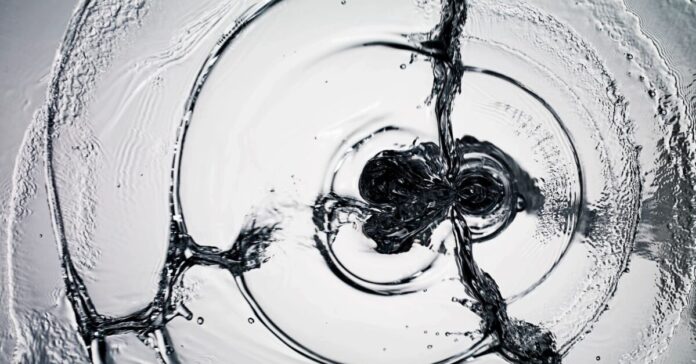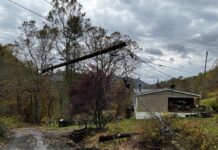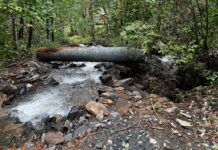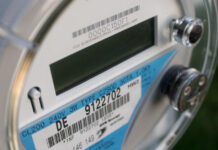I was talking to a neighbor about my desire to bury our water pipe, which I wrote about three days ago. He tells me he has great tasting water and when they dug his well, it provided 35 gallons-per-minute. He says I’m welcome to come down and get water from him whenever I need it.
Let’s contrast that to my spring-fed system, which also provides pure, great-tasting water. Only mine gives one gallon of water every 90 seconds.
But I’ll take my water system any day. Why? Because it doesn’t require electricity. The water flows downhill into a storage tank and flows from there to my faucets and appliances.
To be neighborly, I said he could come up and get water from us if he ever needed to during an extended power emergency. Because that’s the biggest problem with most wells: They don’t work when the power is out.
Deep Wells
I’ve spent about 25 years living in houses with well water, and our old retreat also had well water, so I have hands-on experience with them. I prefer well water to city water because you are not reliant on a third party to purify, pump and provide you with water. If your county has a “boil water alert” because of a flood or a broken water main, it won’t affect people on wells. So wells are better for independence and self-reliance.
Wells also have some downsides. For example, well pumps wear out. In my 25-years, only once did our pump need to be replaced, but doing so was not cheap. I also once lived in a location where many neighbors had to drill deeper wells because their older wells ran dry. That is even more expensive. I was happy to move before we had to do that. If you have a well pump, get the largest pressure tank you can afford that will fit in your well house or crawl space as it will help your pump run more efficiently.
While well water comes from deep underground, it is not always ready to drink and may need treatment. Some places have water that smells and tastes bad. One place I lived had a well with a large amount of iron in the water. As a result, repeated washing of white laundry turned it yellow. The water would also leave stains on toilet bowls and dishes.
Our next house had a water softener installed. We had to pour salt pellets into it every two months. If you have hard water, it can gradually damage your appliances unless you have a water softener.
Wells for Prepping
From a prepping standpoint, the biggest downside of a well is that it requires a pump, and standard well pumps require electricity. When the power goes out, so do your faucets. You can get around the requirement by having a solar power system. Your well can be powered by your whole-house solar system, or you can install a stand-alone system with a low-voltage well pump.
With a solar-power system, you can either store power in batteries or store water in a tank. Either will provide water in the dark or on a snowy day. To store water, you must use the solar power to pump water into your storage tank when the sun shines, and then draw down on the water when the pump is not running. Your storage tank should be high enough above your home to give you sufficient water pressure.
Alternatively, you can use a windmill to pump water. The windmill usually uses a linkage so when the propeller turns, the linkage goes up and down, operating the pump mechanism and bringing water to the surface. (Alternatively, you can use the wind to generate electricity to power the well.) Just as solar works only when the sun is shining, the windmill works only when the wind is blowing. It also requires a storage tank.
Of the two, I prefer the windmill to solar power for prepping purposes because it should be easier to fix or jury rig if it breaks several years after the SHTF. If your solar charge converter blows out or your batteries die, what are your odds of jury rigging that?
Another alternative for wells post-SHTF is to get a manual pump. The best ones for prepping purposes can be installed within your existing well casing and do not interfere with your current pump. There are plenty of videos on YouTube about different models.
Better than Most Alternatives
If you can conquer the power/how-to-pump issue, a well can be an excellent water system for your retreat or full-time prepper property. As long are you are not in the middle of an industrial park or a farming community where large amounts of chemicals are used, your well water is unlikely to get contaminated by chemicals, gasoline, oil, fecal matter, dead animal or other pollutants. If you are drinking from an open water source, such as a pond or stream, you may have to deal with these contaminants and polluted runoff every time it rains. Surface water may also have dirt, grit and other solids in it which must be filtered out or allowed to settle.
People with ponds will tell you that having fish and frogs in their water is a sign that the water is healthy. That may be, but I prefer to drink water nothing has swum around in.
Particulate Filters
Some well water may have sediment in it. This was the case in the house we lived where the wells were running dry. (It may have been a symptom of the falling water level.) I recommend installing a water filter that takes two filtration cartridges, or use two single filters in a row. The first filter cartridge should have a larger pore size, say, ten microns. This will stop much of the brown, muddy dirt that may be in your water. Then the second filter should be smaller, somewhere between one and five microns. This will stop the smaller stuff. In my experience, you will find you need to change the second filter cartridge less often.
If you have a sediment filter, I recommend you buy several years’ worth of filter cartridges. Look for a bulk-pack to save money.
Beyond Water
It should go without saying that you should have a secondary water source, just in cases your well or other primary system fails. Even if this is hauling buckets to a stream and pumping the water through a filter, it’s better than dying of thirst or a water-borne illness.
While we are talking about homes and retreats, let me also take advantage of this opportunity to remind you to stock up on your winter fuel supply. With gas prices falling for the time being, you may save money on home heating oil or propane by buying now. If you are planning to heat with firewood, I recommend stacking as much as you can. If you buy wood, it may be scarce this winter as people turn to their fireplace and wood stoves to help fight the high cost of home heating.
I’ve heard the cost of a winter heating bill in Britain may be so high this winter that some Brits are planning to come to the U.S. for the winter. They can get airfare and rent an Airbnb for less than their electric bill. Crazy, isn’t it?
Video of the Day
Here’s a humorous look at the problems with windmills that pump water only when the wind blows. It’s from the movie The Gods must be Crazy 2 and takes place in the African bush.








